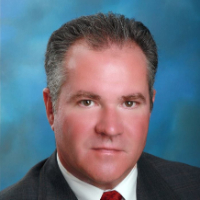 Blackwood Felony Lawyers, New Jersey
Blackwood Felony Lawyers, New Jersey
Sponsored Law Firm
-
 x
x

Click For More Info:
-
Cohen & Bernstein, L.L.C.
1360 Clifton Ave #309 Clifton, NJ 07012» view mapCriminal Defense We’re In this Together!
We work hand in hand with our clients to ensure all of your questions are answered and progress through your legal issue is seamless.
800-978-7341
Sponsored Lawyers
1-7 of 7 matches
Criminal, Traffic, DUI-DWI, Felony, Misdemeanor
Since 1988 Edward honed his litigation expertise serving as a defense attorney in Criminal Cases, DUI/DWI and traffic matters. His distinguished courtroom seasoning will benefit his clients as Edward focuses on criminal defense litigation. He has handled thousands of cases and is well versed in motion practice with years of trial experience. His philosophy of being well prepared has served him well over the years and is a testament to his work ethic and diligence.
(more)


 Lindsay Bernstein Clifton, NJ
Lindsay Bernstein Clifton, NJ Practice AreasExpertise
Practice AreasExpertise

